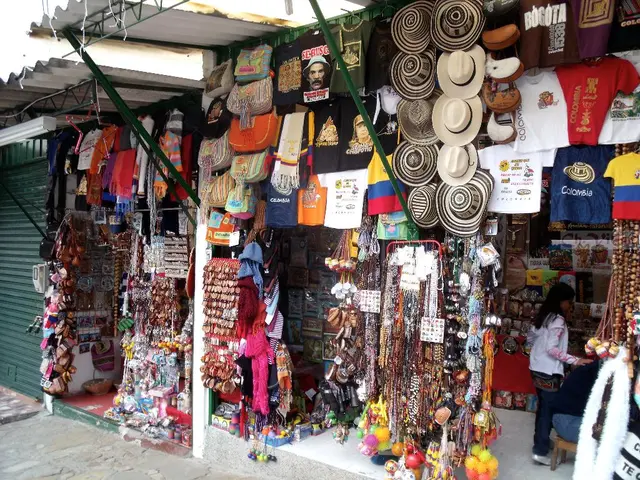Regional Economic Cooperation Entering a New Phase at the ASEAN-GCC-China Summit
Southeast Asian leaders gather in Kuala Lumpur for a strategic summit with Chinese Premier Li Qiang and Gulf state dignitaries, aiming to fortify their economies against geopolitical uncertainty, particularly US tariffs. The initiative taking place on Tuesday marks the first ASEAN-China-GCC summit, a collaboration designed to foster economic, political, and security cooperation among the Association of Southeast Asian Nations (ASEAN), the People's Republic of China, and the Gulf Cooperation Council (GCC).
In April, US President Donald Trump announced a series of tariffs targeting countries worldwide, including US allies, sparking the Association of Southeast Asian Nations (Asean) to hasten efforts to diversify its trading networks.
Malaysian Prime Minister Anwar Ibrahim, whose country serves as the host and chair of ASEAN's rotating chairmanship, stated Monday that a transformation in the geopolitical order is underway. The summit day follows a grand gala dinner the previous evening.
Throughout the years, ASEAN has functioned as a mediator between developed economies such as the United States and China. However, with growing uncertainty about Western reliability, member states of ASEAN are working to diversify their trading partnerships.
According to Chong Ja Ian from the National University of Singapore (NUS), facilitating exchanges between the Gulf and People's Republic of China is part of this diversification strategy. Anwar has been cited as the driving force behind this initiative.
China, which has faced the brunt of Trump's tariffs, is also taking steps to reinforce other markets. The Chinese foreign ministry expressed eagerness to strengthen cooperation with ASEAN and the GCC on Monday. Asean and China are already each other's largest trading partners, with Chinese exports to Thailand, Indonesia, and Vietnam surging in April due to a redirection of US-bound goods.
Premier Li's participation in the summit is considered both timely and calculated, according to Khoo Ying Hooi from the University of Malaya. China aims to bolster its image as a dependable economic partner, particularly in the face of increasing US decoupling efforts.
Tensions between ASEAN member states and China’s territorial disputes in the South China Sea may pose problems for closer alliances with Beijing. Nevertheless, Anwar maintained that Malaysia and China are friends. Philippine leader Ferdinand Marcos emphasized the need for an urgent adoption of a legally binding code of conduct in the South China Sea.
As previously stated, the ASEAN-China-GCC summit focuses on adopting a Joint Cooperation Framework for the next five years, covering topics such as political and security collaborations, non-interference in internal affairs, and development partnerships. The aim is to create a stronger, multi-dimensional partnership that addresses global economic challenges and geopolitical instability, with a focus on joint development, economic resilience, and multilateral cooperation.
- The strategic summit in Kuala Lumpur, involving Southeast Asian leaders, China's Premier Li Qiang, and Gulf state dignitaries, is aimed at strengthening economies against geopolitical uncertainty, particularly US tariffs.
- In light of the US tariffs announced by President Donald Trump, the Association of Southeast Asian Nations (Asean) has accelerated efforts to diversify its trading networks.
- Malaysian Prime Minister Anwar Ibrahim, whose country is hosting the summit, highlighted a transformation in the geopolitical order.
- China, affected by Trump's tariffs, is working to strengthen cooperation with ASEAN and the GCC, according to the Chinese foreign ministry.
- The ASEAN-China-GCC summit aims to create a stronger, multi-dimensional partnership that addresses global economic challenges and geopolitical instability, focusing on joint development, economic resilience, and multilateral cooperation.





